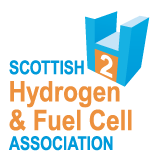As part of its research program on ‘The Future of Energy: Leading the Change’, the Fondation Tuck sponsored a study performed jointly by Hinicio and The Ludwig-Bölkow-Systemtechnik GmbH (LBST) which has evaluated the technical and economic potential of power-to-gas technologies.
The supply of low carbon ‘Green’ hydrogen to existing oil refineries has been identified as a promising means to reduce the greenhouse gas emission intensity of established transportation fuels in the short term, and a potential option to meet the requirements of the EU Fuel Quality Directive. In a scenario for France and Germany, it was assumed that the refineries’ net hydrogen demand –today typically provided via steam methane reforming of natural gas – is to be supplied from green hydrogen from renewable electricity via water electrolysis by 2025.
Using this approach a typical French and German refinery could reduce its greenhouse gas emissions ’gate-to-gate’ by 14.1% and 7.2% respectively compared to the current emissions footprint. In absolute terms, this is equivalent to the reduction of between 1.33 and 1.50 million tons of CO2eq per year from just 20 refineries in France and Germany, making this option highly effective. Indeed, this is a significant contribution to the ~10 Mt/yr CO2eq emissions reduction that needs to be achieved in 2020 versus today to comply with the EU Fuel Quality Directive both in France and in Germany.
Full cost assessments show that green hydrogen in refineries is cost-efficient with greenhouse gas mitigation costs below German infringement costs and in the range of or even below other measures in transportation. Furthermore, it can be implemented in the short-term, because bulk quantities of hydrogen are already used in refineries, there is a track record in France and Germany with regard to the deployment of renewable power plants, and both countries have strong industry players in the electrolyser and hydrogen value chain.
To pave the way for green hydrogen use in refineries, the report recommendations include:
• Adapt the EU Fuel Quality Directive and national regulatory frameworks to facilitate and encourage green hydrogen use in refineries;
• Improve the data basis on hydrogen use in refineries through further research activities; and
• Support business case analyses for individual refineries and regional roadmaps for renewable power and hydrogen infrastructure deployment.
By adopting this early deployment of green hydrogen into industrial processes, the wider use of decentralised power-to-hydrogen systems could become effective and economically viable. This would stimulate the supply of renewable or low-carbon hydrogen to emerging fuel cell electric vehicle (FCEV) fleets with co-benefits for the local energy system by facilitating the integration of renewables and enhancing local energy autonomy and strengthening the local economy.
Another application that was analysed in detail is the implementation of a semi-centralised hydrogen energy systems, whichcould become an effective and economically viable way of developing the supply of renewable or low-carbon hydrogen to emerging fuel cell electric vehicle (FCEV) fleets with co-benefits for the local energy system.
Rankine Avenue
Glasgow, Scotland, G75 0QF
01355 593570
Scottish Hydrogen & Fuel Cell Association
Your Custom Text Here
